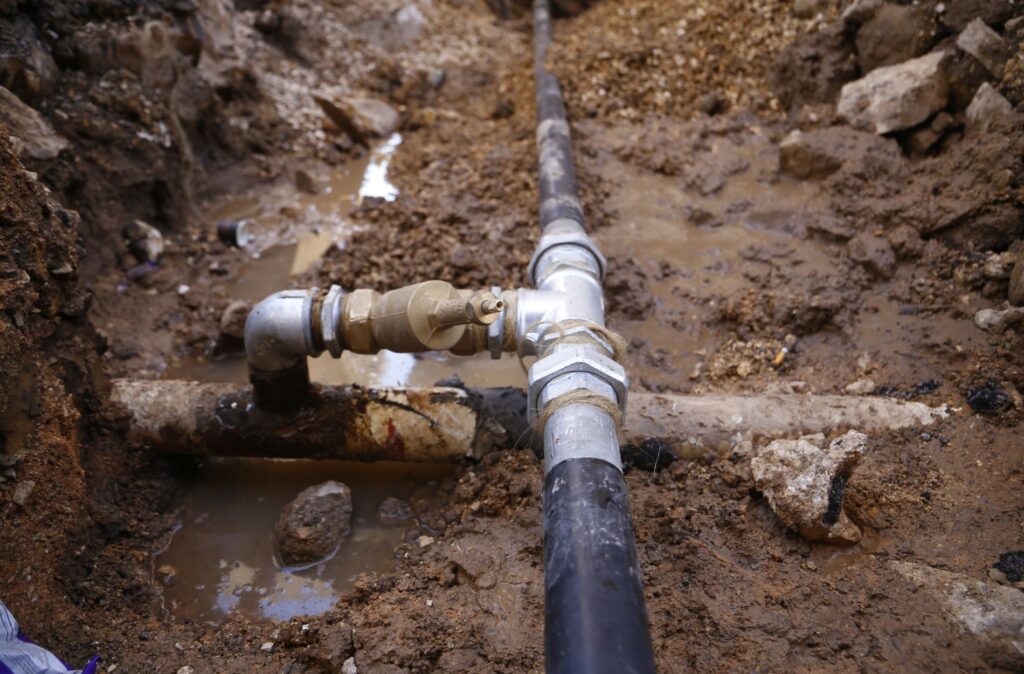Identifying Pipe Material Problems in Spring Properties
Identifying pipe material problems is crucial for homeowners in Spring, especially as aging water systems continue to face new challenges. Pipes are an essential part of any home, delivering water for drinking, cooking, and cleaning, but they can deteriorate over time. When pipes are made of different materials, each type has its own potential issues. Identifying these problems early can prevent major damage to your property. Understanding the signs of pipe problems and the materials involved can save significant time, money, and stress in the long run.

In Spring, the climate and soil conditions can exacerbate issues with certain pipe materials. As homes age, the materials that were once standard can begin to fail, leading to leaks, corrosion, and contamination. This not only affects water quality but can also damage the structure of a home. Recognizing the need for repiping could mean the difference between a seamless water supply and ongoing issues. By addressing these challenges proactively, homeowners can ensure the longevity and safety of their plumbing systems.
Common Pipe Materials in Spring Properties
In many homes in Spring, a variety of pipe materials can be found, each with its unique characteristics and issues. Knowing more about these materials helps property owners understand what might be happening beneath the surface.
1. Copper: A popular choice for its durability and resistance to corrosion. However, copper can develop pinhole leaks if the water has certain pH levels or it suffers from prolonged exposure to acidic conditions.
2. Galvanized Steel: Common in older homes, this type of piping is prone to corrosion and rust over time, which can restrict water flow and cause discolored water.
3. PVC: Widely used for its affordability and resistance to corrosion. While PVC pipes are quite durable, they can crack or degrade under prolonged exposure to sunlight and extreme temperatures.
4. PEX: Known for its flexibility and ease of installation, PEX is resistant to scale and chlorine. However, this material can be damaged by rodents and may degrade in the presence of direct sunlight.
Each type of material has its advantages and limitations, which homeowners in Spring should consider. For instance, the humid climate can speed up corrosion in galvanized steel pipes, while copper might require careful monitoring of water pH to avoid leaks. PVC and PEX can offer great performance, yet their installation and environmental factors must be carefully considered to avoid future problems. By understanding the materials and their common problems, homeowners can take informed steps toward effective plumbing maintenance.
Signs of Pipe Material Problems
As homes in Spring age, it becomes more critical for homeowners to recognize signs that might indicate problems with their pipe materials. Identifying issues early on can protect your home from more serious damage and ensure that any necessary repairs are done promptly. There are several indicators that homeowners should be on the lookout for.
– Visual cues: Discoloration, corrosion, or visible rust on pipes can suggest material deterioration. A change in the color or appearance of water, such as it being brown or having metallic specks, might indicate corroded pipes.
– Leaks: Persistent leaks or moisture around piping areas can be a telltale sign. Small leaks might go unnoticed until they worsen, so regular inspection is advisable.
– Functional issues: Reduced water pressure or unusual noises when using water fixtures can point to internal blockages or damage within the pipes.
– Health and safety concerns: Older pipes might lead to water contamination, posing health risks. Keeping an eye on any sudden changes in water taste or smell is important.
Addressing these problems with timely intervention can prevent complications, ensuring the plumbing in your Spring property remains safe and functional.
Why Repiping Might Be Necessary
If you’ve noticed these signs in your Spring home, you might be wondering whether repiping is a necessary step. Considering the situation carefully is essential for maintaining the health and safety of your home’s plumbing system. Here are some reasons why repiping might be necessary:
1. Increased frequency of repairs: If you find yourself regularly calling professionals to fix leaks or other pipe issues, it may be more cost-effective to consider a complete repiping. Recurrent issues often indicate underlying material problems that simple repairs can’t fix.
2. Improved water quality and pressure: Old or damaged pipes can lead to poor water quality, affecting taste and safety. New pipes can ensure clean water and restore proper water pressure, which is essential for daily activities.
3. Long-term cost benefits: While the upfront cost of repiping might seem significant, it can save money over time by reducing the need for frequent repairs and water damage restoration. New piping offers peace of mind and reliability, eliminating the worry of dealing with constant plumbing problems.
Choosing the Right Repiping Solution for Spring Homes
Once you determine that repiping is the right choice, selecting the best materials and approach tailored to your Spring home is essential. Here are some key considerations:
– Evaluating materials: Considering the climate and conditions in Spring, choose materials that offer durability and resilience. Consultation with professionals can provide insights tailored to your specific needs.
– Professional assessment: Having our professionals assess your plumbing system can help identify specific needs and conditions that influence material choice and installation methods.
– Experienced plumbers: Our technicians possess the expertise to recommend the most suitable solutions, ensuring that your home’s plumbing system stands the test of time. Choosing experienced specialists can make a significant difference in the quality and longevity of the repiping work.
Ensuring Long-term Pipe Health in Your Spring Property
For residents of Spring, maintaining a dependable and efficient plumbing system requires attention and preventive measures. Regular inspections and proactive replacements, when needed, can safeguard the health and safety of your home’s water supply.
Staying informed about the unique challenges related to the pipe materials commonly used in Spring properties allows homeowners to make knowledgeable decisions. Regular communication with plumbing professionals offers insights and guidance essential for maintaining system integrity. Investing in the care and upkeep of your plumbing ensures a seamless water supply, benefiting both the quality of life and the property’s value.
Are you ready to secure your home’s plumbing system and prevent leaks from aging pipes by considering repiping in Spring that fits local conditions? Texas Quality Plumbing offers guidance to help you maintain a consistent water supply. For a quick estimate or to book a service visit, please contact us today.

